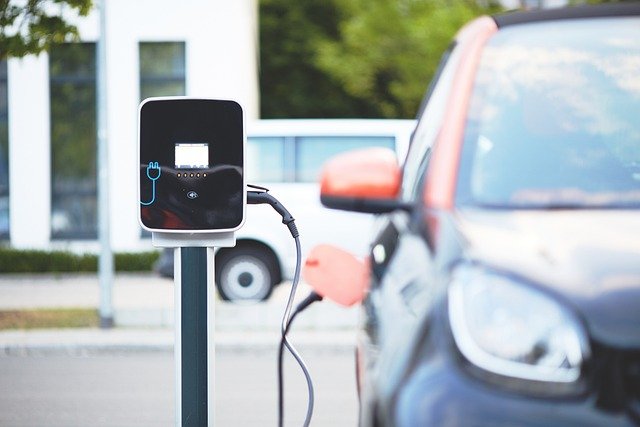Discover the Power and Efficiency of Electric SUVs: The Future of Clean, Quiet Adventure
Discover the power and efficiency of electric SUVs—combining smooth performance with zero emissions. Say goodbye to gas stations and enjoy a clean, quiet ride with plenty of room for adventure. Drive into the future today, while helping the environment.

What exactly are electric SUVs?
Electric SUVs are sport utility vehicles that run entirely on electricity stored in rechargeable batteries. Unlike their gasoline-powered counterparts, these vehicles produce zero direct emissions, making them a cleaner alternative for the environment. Electric SUVs combine the spacious interiors and robust designs of traditional SUVs with advanced electric drivetrains, offering smooth acceleration, instant torque, and a quiet ride. These vehicles typically feature large battery packs that provide ample range for daily commutes and even longer journeys, addressing the range anxiety that once deterred many potential electric vehicle buyers.
How do electric SUVs compare to traditional gas-powered SUVs?
When comparing electric SUVs to their gas-powered counterparts, several key differences become apparent. Electric SUVs offer instant torque, providing quick acceleration and a responsive driving experience. They also tend to have a lower center of gravity due to the placement of their battery packs, which can improve handling and stability. Maintenance requirements for electric SUVs are generally lower, as they have fewer moving parts and don’t require oil changes. However, the initial purchase price of electric SUVs is often higher than that of comparable gas-powered models, though this gap is narrowing as technology advances and production scales up.
What are the environmental benefits of driving an electric SUV?
The environmental advantages of electric SUVs are significant. By producing zero tailpipe emissions, these vehicles help reduce air pollution and greenhouse gas emissions, particularly when charged using renewable energy sources. Electric SUVs contribute to improved air quality in urban areas and play a crucial role in combating climate change. Additionally, the overall carbon footprint of electric SUVs is typically lower than that of gas-powered vehicles, even when considering the emissions associated with electricity production. As power grids continue to incorporate more renewable energy, the environmental benefits of electric SUVs will only increase over time.
Are electric SUVs practical for everyday use and long trips?
Electric SUVs have become increasingly practical for both daily driving and longer journeys. Many modern electric SUVs offer ranges exceeding 200 miles on a single charge, with some models capable of traveling over 300 miles. This range is sufficient for most daily commutes and weekend getaways. For longer trips, the expanding network of fast-charging stations along major highways makes it easier to plan routes with convenient charging stops. Additionally, the spacious interiors and cargo capacity of electric SUVs make them well-suited for families, outdoor enthusiasts, and those who require ample storage space for their daily activities.
What features and technologies are unique to electric SUVs?
Electric SUVs come equipped with a range of innovative features and technologies. Many models offer advanced regenerative braking systems that capture energy during deceleration to recharge the battery, extending the vehicle’s range. Smart charging capabilities allow owners to schedule charging during off-peak hours for lower electricity rates. Some electric SUVs feature vehicle-to-load (V2L) technology, enabling them to power external devices or even serve as a backup power source for homes during outages. Advanced driver assistance systems, large touchscreen displays, and over-the-air software updates are common in many electric SUV models, providing a high-tech driving experience.
How do the costs of owning and operating an electric SUV compare to traditional SUVs?
While the initial purchase price of electric SUVs is often higher than that of comparable gas-powered models, the total cost of ownership can be lower over time. Electric SUVs benefit from lower fuel costs, as electricity is generally cheaper than gasoline on a per-mile basis. Maintenance costs are typically reduced due to the simpler powertrain with fewer moving parts. Many governments offer incentives for electric vehicle purchases, which can significantly offset the initial cost. Additionally, some electric SUVs may have higher resale values due to the growing demand for electric vehicles.
To provide a clearer picture of the electric SUV market, let’s compare some popular models:
| Model | Range (EPA est.) | Base Price (USD) | Key Features |
|---|---|---|---|
| Tesla Model Y | 330 miles | $52,990 | Autopilot, OTA updates, Supercharger network access |
| Ford Mustang Mach-E | 314 miles | $45,995 | BlueCruise hands-free driving, Phone-as-a-Key technology |
| Volkswagen ID.4 | 275 miles | $38,995 | Spacious interior, 3 years of free DC fast charging |
| Hyundai IONIQ 5 | 303 miles | $41,450 | Vehicle-to-Load (V2L) capability, ultra-fast charging |
| Rivian R1S | 316 miles | $78,000 | Off-road capability, adjustable air suspension |
Prices, rates, or cost estimates mentioned in this article are based on the latest available information but may change over time. Independent research is advised before making financial decisions.
As the automotive industry continues to evolve, electric SUVs are poised to play a significant role in shaping the future of transportation. With their combination of space, performance, and environmental benefits, these vehicles offer a compelling option for consumers looking to reduce their carbon footprint without sacrificing utility or comfort. As battery technology improves and charging infrastructure expands, electric SUVs will likely become an increasingly common sight on roads around the world, driving us towards a cleaner, more sustainable future.
The shared information of this article is up-to-date as of the publishing date. For more up-to-date information, please conduct your own research.




